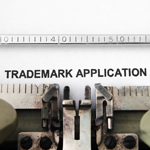IP licensing is growing in complexity as digital solutions involving Internet of Things (IoT), Software-as-a-Service (SaaS) and Network-as-a-Service (NaaS) become more prevalent. A shareholders agreement is a key cornerstone for protecting, and ultimately realising, the value of an IP-based business, whether it is a start-up agreement between founders, a capital raise opportunity, or a sell-down to extract some value out of a more mature business.
In conjunction with the Institute of Patent and Trade Mark Attorneys of Australia (IPTA), our experienced commercial Partner Peter Karcher takes you through the main elements of IP licenses and shareholder agreements. He puts a practical and commercial context on how such agreements operate in the real world of business.
ClarkeKann thanks IPTA for their cooperation in making the Webinar available to CK clients and contacts.


